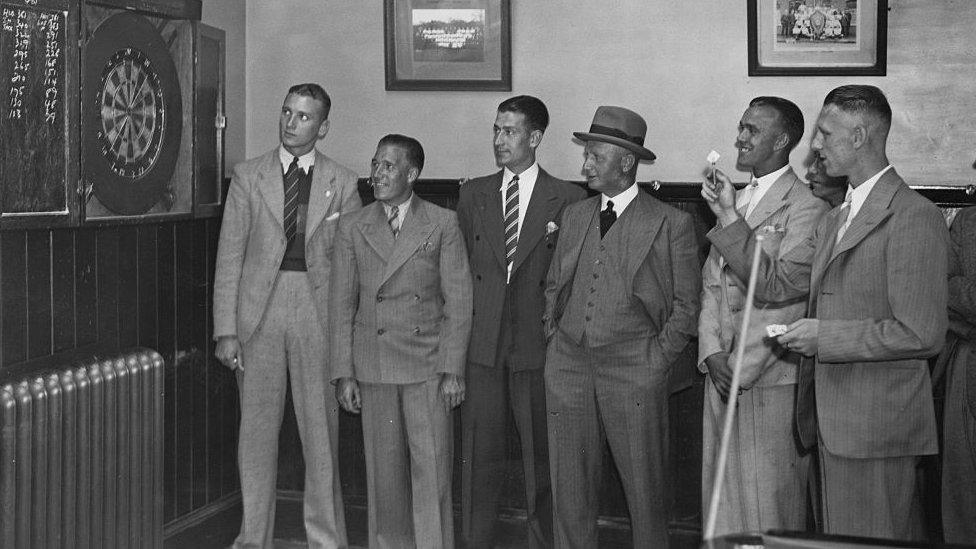Stuart MacRae: The Highland chief who played for England
- Published
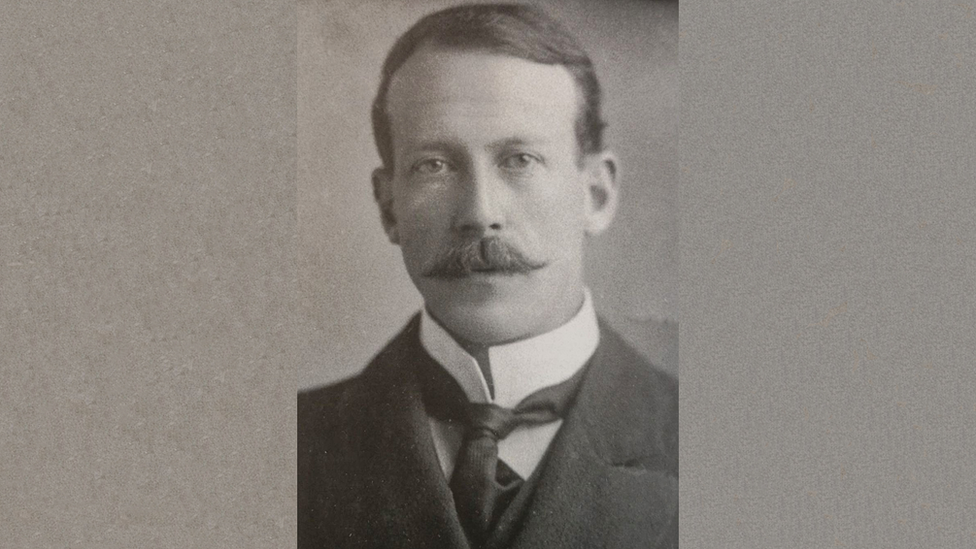
Stuart MacRae was described as an all-round sportsman and founded Newark Golf Club
As Scotland take on England to mark 150 years of international football, there are calls for greater recognition for a Highland chief who played in the fixture - for England.
On a still winter day in 1927, hundreds of mourners were gathered by Kintail's Loch Duich to meet a coffin which had come overnight from London.
As a piper played Crò Chinn t-Sàile - I Will Go Home - the body of clan chief Stuart MacRae of Conchra was carried to his family's burial ground of Clachan Duich.
His obituary described him as an all-round sportsman and a Highland gentleman "of the best type".
MacRae could indeed claim a long Highland lineage but it was also controversial.
His mother Grace Stewart was born in Harris and said to be a traditional Highland lady who could speak Gaelic fluently and play Highland music.
She was said to be the soul of Highland hospitality.
But Grace's Perthshire father Donald was a land manager - known to islanders not for hospitality, but eviction and clearance.
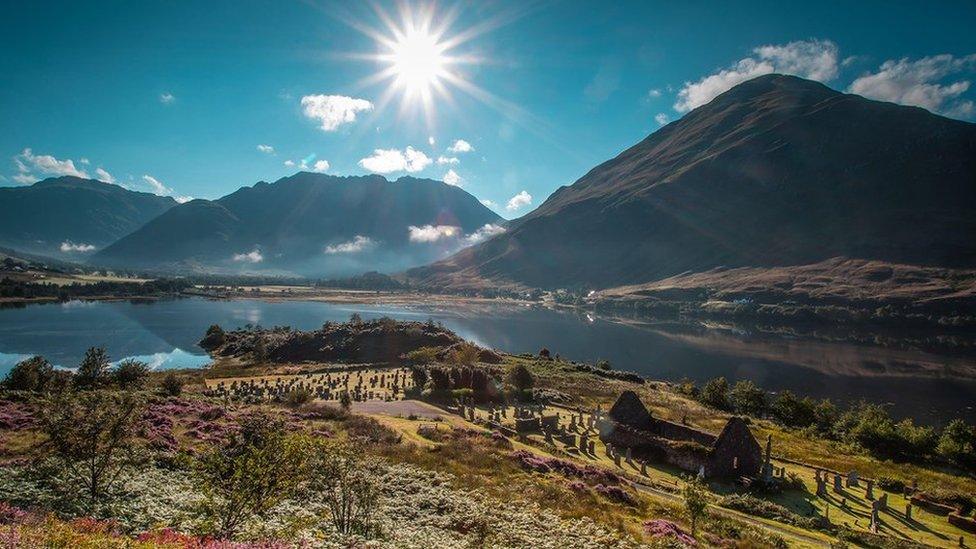
Clachan Duich, the burial place of Stuart MacRae of Conchra.
On his father's side the MacRaes of Conchra had once fought for the Jacobites but by the late 18th Century were part of the Earl of Seaforth's regiment serving the British Empire in India.
University of Glasgow's Dr Andrew MacKillop said: "What that does is establish a tradition within that family of sending sons and cousins and nephews into military service in India.
"They're part of a pattern by which middle ranking former clan gentry use the empire to try to maintain their status."
It was a pattern which meant MacRae was born in 1855, not by the shores of Loch Duich, but in colonial Bengal.
Dr MacKillop says Britain's imperial rule in India in the first five decades of the 19th Century was "brutally racist".
He says: "We're used to thinking of Highland families as being on the receiving end of clearance but these groups of people are part of the imperial elite."
While his brother continued the military tradition, MacRae's life took a different path.
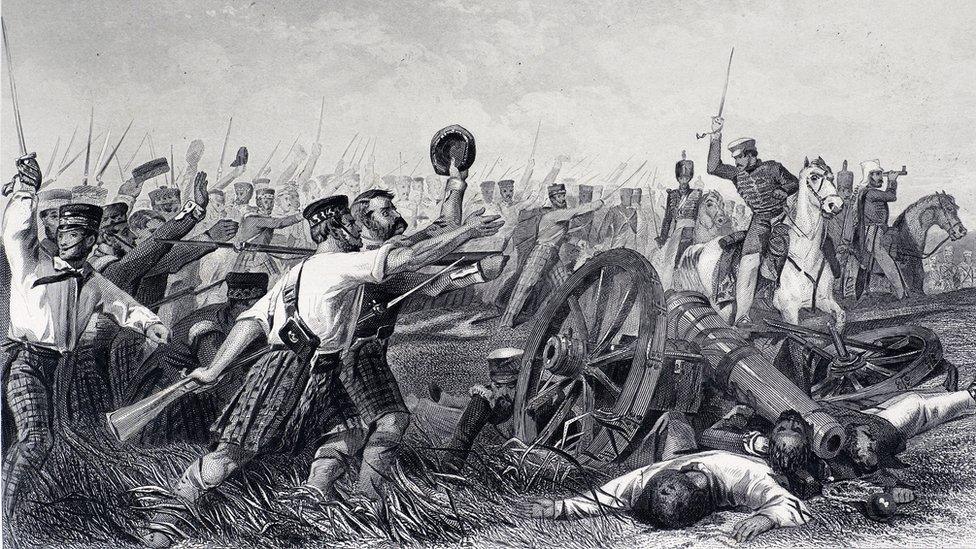
A depiction of Highlanders charging during the Indian Uprising of 1857 - Stuart MacRae was born in India in 1855 where his family had seen military service
Rather than seek glory on the battlefield, he would win recognition for his sporting prowess, turning his hand to golf - including the founding of Newark Golf Club in Nottinghamshire. He also played rugby, cricket, tennis, squash - and football.
Although the family returned to Scotland when he was a boy, MacRae's birthplace and imperial links would be crucial to his sporting life.
The legal status of those born overseas in the Empire was determined by conditions of their service.
But in football it was simpler.
Scotland would not pick players who were not born or resident in Scotland, but MacRae had a route to playing for England.
Football historian Iain Campbell Whittle, external says: "It wasn't a written rule, it seems to be a social rule, that anybody who was born outwith the British Isles was considered to be a son or daughter of the Empire.
"England was the centre of the Empire and that was it."
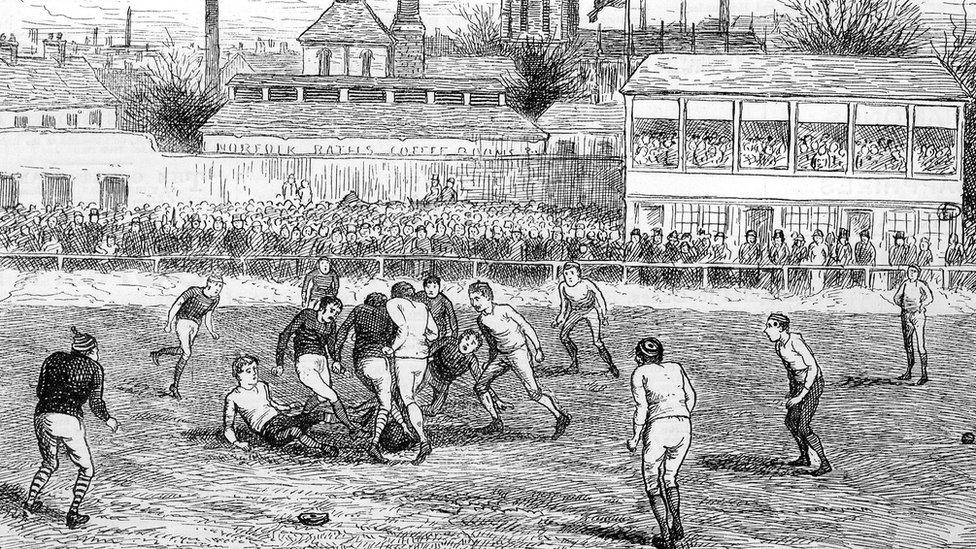
England v Scotland in Sheffield in 1883, the first time MacRae played in the fixture
The rule would later change but MacRae was able to make his international debut for England in 1883, after impressive performances for Notts County.
It was a winning start as England thumped Wales 5-0. There was special mention for MacRae and his "good throws-in".
He held his place in the team when Scotland travelled to face England in Sheffield.
A late goal clinched a 3-2 win for the Scots.
MacRae earned praise as the best half-back on the field, and there was no indication he was fazed by facing his ancestral homeland.
"Perhaps as a semi-English gentleman, it didn't really cross his mind," suggests Campbell Whittle.
"He was an amateur footballer who was asked to play for England and he couldn't play for Scotland."
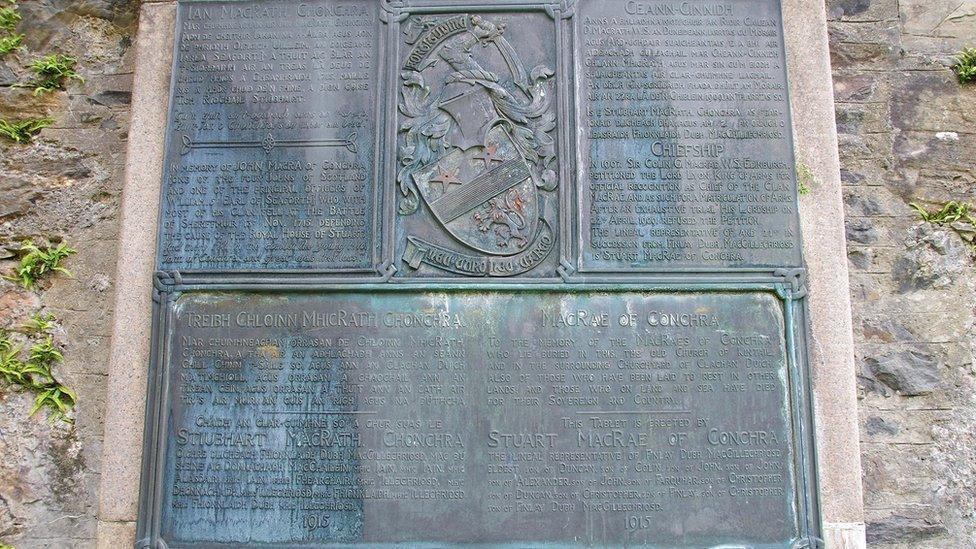
MacRae erected a plaque in English and in Gaelic at Clachan Duich to press the MacRae Conchra claim as chiefs of Clan MacRae
The following year Scotland won 1-0 in Glasgow but MacRae was part of footballing history as England became the first international team to use the 2-3-5 formation.
Mr Whittle said: "MacRae played in the centre of the three half-backs, he was the first centre-half to have played international football."
Injury ruled the clan chief out of England's next game.
"The replacement was James Forrest, who was effectively the first openly professional player to play for England," says Mr Campbell Whittle.
"So we have this Scot who played for England and who was a bridge between two styles of football and also between amateurism and professionalism."
MacRae's international career was now over.
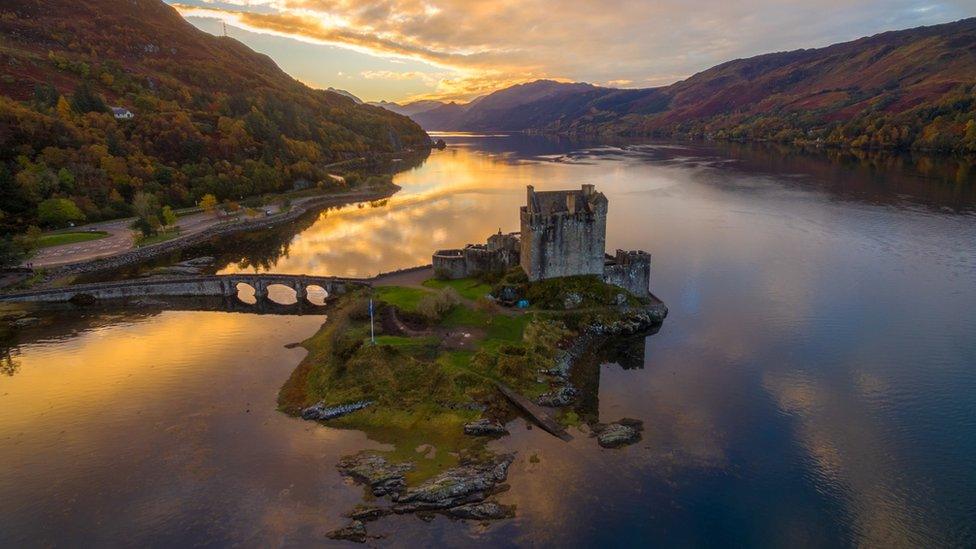
MacRae's brother bought ruined Eilean Donan and went on to rebuild the castle
He would later be involved in a debate over which line of Clan MacRae should be recognised as overall chief, placing a plaque at Clachan Duich staking his own claim as MacRae of Conchra.
In the same era his brother Lt Col John MacRae-Gilstrap, bought ruined Eilean Donan Castle, near Dornie, to which the MacRaes had a centuries-long link.
The soldier would spend 20 years rebuilding the castle.
As Scotland and England prepare to mark a historic milestone at Hampden, Mr Campbell Whittle believes it is also time to restore too the reputation of the pioneering Highland Scot who made history in the early days of international football - with an English shirt on his back.
Related topics
- Published30 November 2022
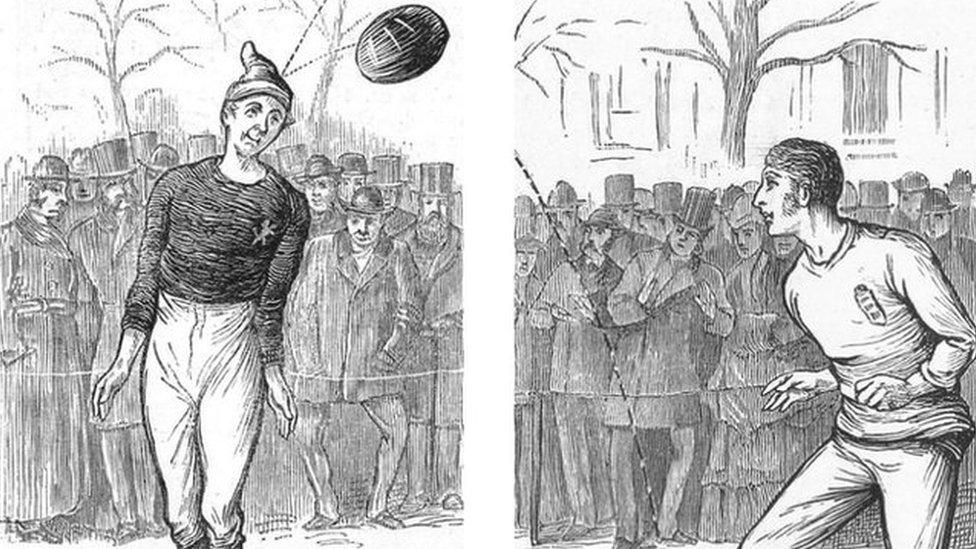
- Published19 September 2021
